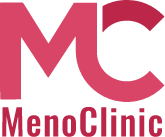Everything You Need To Know About Testosterone Benefits In Women

Overview of the Main Testosterone Benefits for Women
In recent years, there has been an increased interest in testosterone use for women. Testosterone is important for health and wellbeing in women as well as men, but unfortunately, lots of myths and misinformation around this therapy, from testosterone causing a “man face” to “out of control” side effects, have got in the way of understanding.
In this article, we’ll dispel some common misconceptions and set out the facts about the benefits of testosterone in women, how testosterone works for female health, what the evidence tells us about specific benefits and conditions, and some practical considerations for women thinking about testosterone therapy.
Role of Testosterone in Female Health
Testosterone is made primarily in the ovaries and the adrenal glands in women and girls. The female body’s testosterone levels are much lower than men, testosterone is crucial for.
- Sexual desire and enjoyment
- Energy and vitality
- Mood and cognitive function
- Bone health and muscle mass
Perimenopause and menopause involve natural decreases in testosterone, oestrogen, and progesterone, contributing to symptoms such as reduce libido, fatigue and muscle loss.
The Evidence Base: Proven Benefits of Testosterone Therapy in Women
Increased libido and sexual satisfaction
Testosterone has been shown to improve libido, arousal, and orgasm in women and is a proven treatment for Hypoactive Sexual Desire Disorder (HSDD). Women with HSDD who experience particularly low libido and those with a decrease in libido after menopause but are already on hormone replacement treatment (oestrogen and progesterone) are most likely to notice a benefit from testosterone.
Mood, mental health, and cognitive clarity
There are additional mental health and mood benefits of testosterone in women, many of whom who take testosterone report feeling less anxious, less depressed, more confident and more in control. Testosterone can also improve mental clarity and reduce fatigue, which many women experience in their menopausal years.
Energy, vitality, and reduction in fatigue
Women also report daily energy and vitality as a benefit from taking testosterone. Women will also find that the additional testosterone can help them build and maintain lean muscle as they age, as well as support bone health.
Stronger bones and muscle health
Testosterone has also been shown to have a positive effect on the prevention of osteoporosis in women. In addition to these benefits, some smaller studies show that testosterone may have a protective effect on cardiovascular health and offer other metabolic benefits. Some evidence also points to a possible reduction in breast cancer risk in women with low levels of testosterone.
Forms of Testosterone Therapy and How It Is Administered
Testosterone is typically applied topically as a gel or cream, which is absorbed through the skin. It is applied once daily, in the morning, to the outer or inner thighs. Doses are based on the individual blood tests and symptoms as they go through menopause. Our bodies still produce some testosterone naturally, and doses should reflect this rather than be supraphysiologic (greater than normal levels found in the body).
Ideal Candidates for Testosterone Benefits in Women
Low libido – women with a persistent low sex drive, despite trying other HRT
Fatigue, mood, or cognitive symptoms – those who experience low mood, anxiety, mental health, fatigue, or brain fog.
Postmenopausal women – women who have gone through menopause are at risk of bone loss and declining muscle mass. Testosterone is an important support to bone and muscle in this situation.
Accessing Testosterone Therapy for Women in the UK
Testosterone is not licensed in the UK for use in women but is prescribed by clinicians off-label. Patients are able to access it via a private online clinic, MenoClinic. Either way, you will need a prescription from a qualified specialist with protocols and safety measures in place for monitoring and support.
Safety Monitoring and Managing Side Effects
Side effects of testosterone use in women are generally manageable if you are monitored and prescribed testosterone at a physiological dose. The most common side effects of testosterone therapy include mild acne and excess facial and/or body hair growth. Less common side effects may include a deepening of the voice and an increase in the size of the clitoris. We have more information on side effects and how to manage them in our Testosterone Benefits for Women: Side Effects and Risks article. It is important to have a specialist overseeing your testosterone management to balance the benefits and risks. Women should have their hormone levels, cholesterol levels, and haemoglobin levels routinely checked.
The Current Evidence Base and Gaps in Knowledge
Most of the available evidence is for short-term testosterone use, and studies in this area are ongoing. What is clear is that when it comes to increased libido, energy, and mood, testosterone is an effective therapy for women with clinically low levels of testosterone. Longer-term and UK-based clinical trials are needed to give a fuller understanding of the benefits of testosterone use in women and any potential safety risks.
Cost, Accessibility, and Practical Considerations of Testosterone Use in the UK
NHS access is limited and often requires a specialist referral. Access to testosterone through private clinics and online services is more widely available and is cost-effective. Costs can include fees for initial consultation, ongoing monitoring, and, of course, the medication itself. MenoClinic offers online and telephone appointments; however, if required a face-to-face appointments and consultations can be arranged. Female specific testosterone, Androfeme, is available at MenoClinic and is preferred over male-adapted formulations.
Alternatives and Adjuncts to Testosterone in Women’s Health
There are many other well-established hormones in women’s health apart from testosterone, the most well-known being oestrogen and progesterone as part of HRT. Adjunctive hormones such as DHEA may also be considered in a woman’s health management plan. Lifestyle approaches, including a healthy diet, regular exercise, and stress management, are also important to consider and support wellbeing.
Starting Testosterone in Women Safely and Effectively
Key signs and symptoms women may experience that benefit from testosterone include a reduced libido, low mood, energy and mental clarity, and a reduction in bone and muscle mass. MenoClinic will test total and free testosterone levels in the blood. Testing testosterone levels is part of the assessment, along with detailed discussions of what women are experiencing and whether they may benefit from testosterone use. At MenoClinic, we discuss expectations, dosing, and monitoring plans. It is important to ask questions about what to expect from testosterone, including potential side effects, how long they might last, and how often you should have follow-up consultations.
The Future of Testosterone in Women’s Health
Demand for testosterone is rising in the UK, and women’s specific testosterone products, Androfeme. Demand for female-specific testosterone product, Androfeme, is increasing as the field becomes more widely accepted by the medical community. Increased research in this area in the future will help to better inform treatment and develop more tailored approaches.

Book a consultation with us today
Symptom
Checker
Our symptom checker makes it easier for you to identify your symptoms and pinpoint whether menopause is the root cause of your issues, or if we need to refer you for further investigations.





